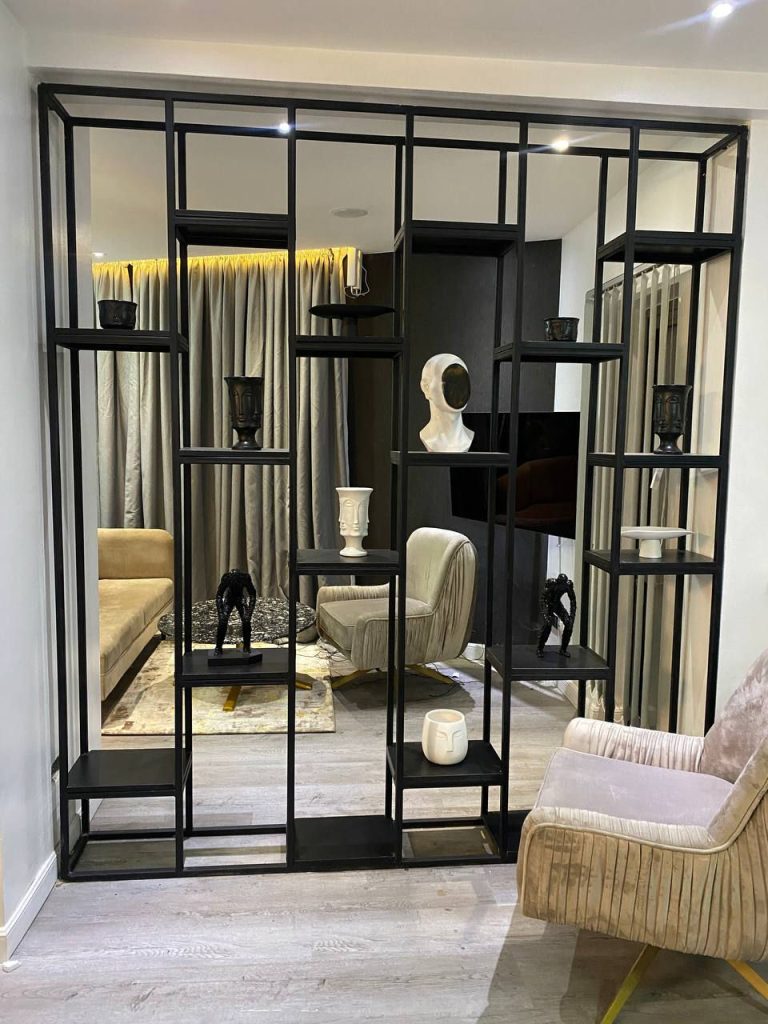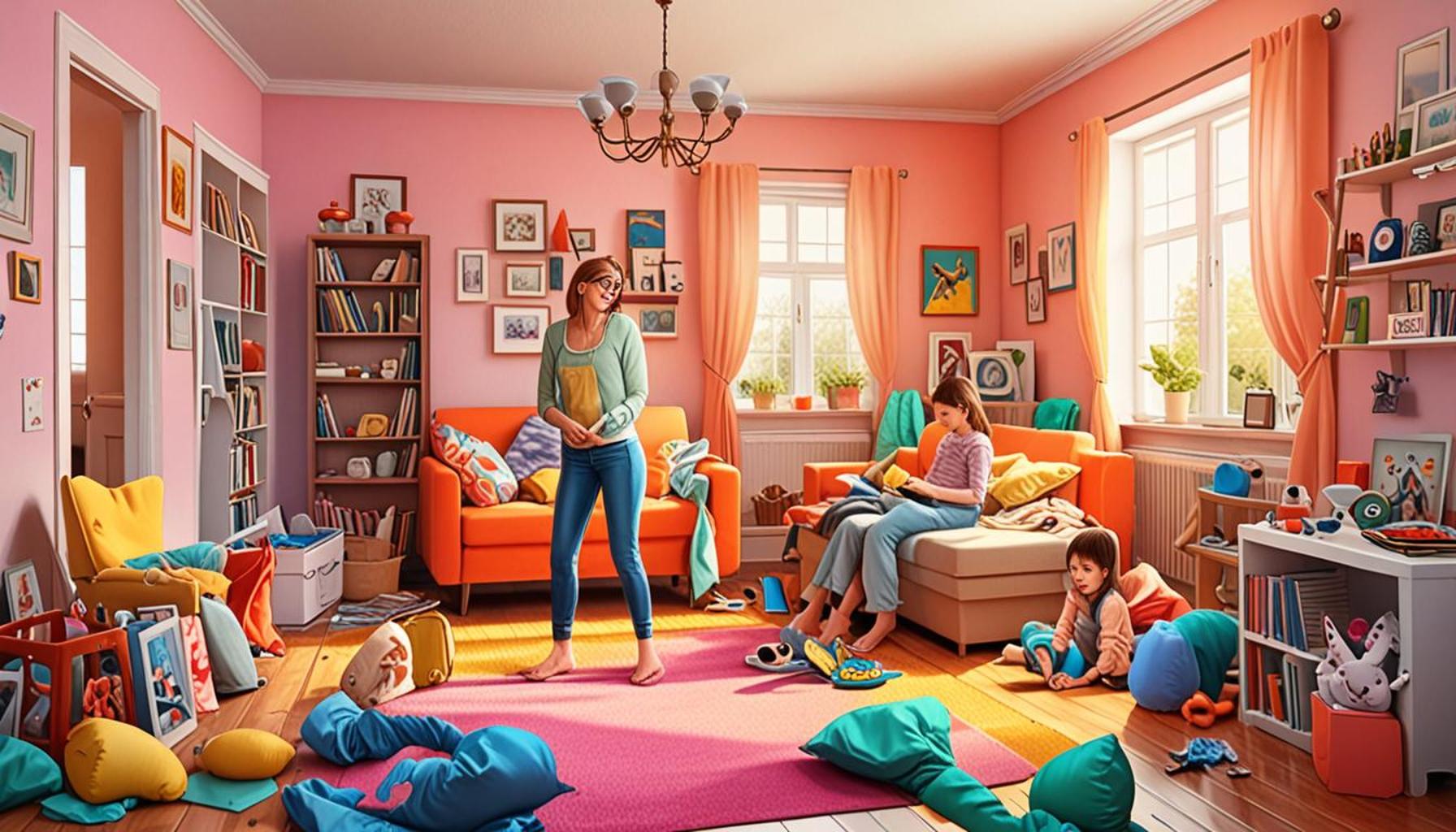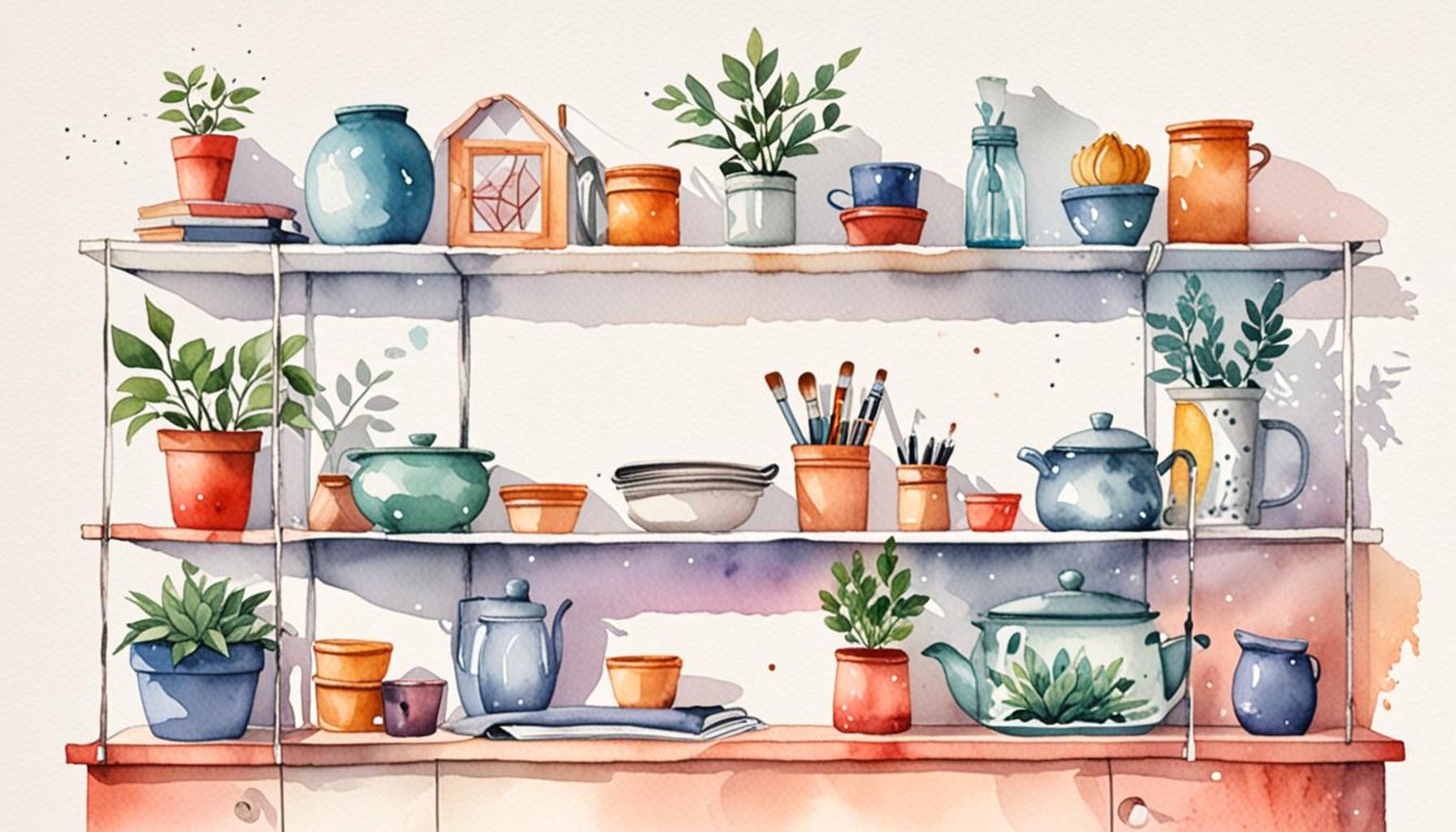Minimalism in Nigerian Culture: How Reducing Clutter Can Transform Traditions and Lifestyles

Exploring Minimalism in Nigerian Culture
The practice of minimalism is not merely a trend; it embodies a lifestyle choice that resonates deeply within various cultural contexts, including Nigeria. In this vibrant nation, known for its kaleidoscope of cultures, traditions, and communities, minimalism is making waves as individuals reassess the true value of their possessions and experiences. With urbanization motivating many Nigerians to seek greater efficiency in their living situations, this lifestyle shift could lead to transformative social interactions and cultural reflections.
Space Utilization
In bustling Nigerian cities like Lagos and Abuja, where real estate is at a premium, space utilization becomes a critical concern. Many urban dwellers face the challenge of limited square footage in their homes. Minimalism encourages smarter use of space through multifunctional furniture and decluttering. For example, a simple wooden bench can serve as both seating and storage, maximizing utility without sacrificing aesthetic appeal. By adopting these practices, Nigerians are not only making their living environments more manageable but also creating a sense of peace and order amidst urban chaos.
Traditional Practices
Nigerian rituals are steeped in significance and often elaborate symbolism. Embracing minimalism in these traditions can enhance their impact. For instance, a wedding ceremony stripped of extravagant decorations can focus on personal vows and family unity, emphasizing what truly matters. Local artisans might also shift their practices towards sustainable craftsmanship, creating beautiful, yet simple items that highlight skill and authenticity rather than mere opulence. This return to simplicity can breathe new life into cultural expressions, making them more accessible and relatable to modern audiences.
Societal Values
At the heart of Nigerian culture lies a profound sense of community, and minimalism can reinforce these societal values. As individuals prioritize shared experiences over material acquisitions, relationships deepen. For instance, communal living arrangements, such as in shared compounds or among extended families, may become increasingly appealing, promoting collaboration, support, and mutual growth within neighborhoods. This shift towards valuing connections over possessions can rejuvenate traditional kinship structures, fostering harmony and a sense of belonging.
As the push for minimalism gathers momentum, Nigerians are discovering its numerous benefits. With less clutter in their homes and lives, individuals can enjoy a clearer mindset and a better focus on cultural practices that resonate with their identities. Moreover, this minimalistic approach aligns seamlessly with a burgeoning global commitment to sustainable living and environmental stewardship. By embracing minimalism, Nigeria stands to retain its rich cultural ethos while forging a path toward responsible living that respects both heritage and the planet.

The evolution of minimalism within Nigerian culture can be seen as an intriguing interplay between the old and the new. As individuals reassess their priorities, the outcome may be a revitalized appreciation for traditions that blend simplicity with significance, ultimately crafting a unique narrative in the ever-advancing global conversation on lifestyle choices.
LEARN MORE: This related article may interest you
Redefining Spaces: The Minimalist Impact
The rise of minimalism in Nigeria has prompted a profound reevaluation of how people utilize their living spaces. As urban centers become increasingly crowded and living costs soar, individuals are challenged to find innovative solutions to maximize their environments. Space efficiency is now more than a necessity; it is a guiding principle that influences design and lifestyle choices.
In Nigeria, traditional homes often reflect a rich tapestry of cultural heritage, filled with intricate decorations and meaningful artifacts. However, the modern minimalist approach encourages a transformation where the emphasis shifts from quantity to quality. Here are some manifestations of this trend:
- Functional Design: Homes equipped with modular furniture—like expandable dining tables and foldable chairs—allow families to host gatherings without feeling cramped. This seamless blend of style and functionality caters perfectly to the Nigerian ethos of community.
- Natural Elements: Incorporating plants and natural light into living spaces not only beautifies a home but also promotes well-being. Many Nigerians are gravitating towards using local flora, such as the resilient snake plant or the calming peace lily, which align with both minimalism and environmental consciousness.
- Decluttering Cultural Artifacts: Revisiting inherited items can lead to a streamlined collection that maintains sentimental value while reducing clutter. Such practices can transform an inherited home into a personal sanctuary that showcases a curated selection of cultural significance, rather than a chaotic display of the past.
As minimalism permeates daily life, it is also influencing consumer behavior across different strata of society. With a more conscious approach towards spending, Nigerians are beginning to prioritize need over want. This gave rise to a growing market for sustainable products crafted by local artisans, which further emphasizes the ethos of quality over quantity. For instance, traditional handwoven textiles are now being championed not only for their beauty but for their minimalistic philosophy; they are functional and represent local craftsmanship.
From Festivities to Daily Routines
The application of minimalism doesn’t stop at physical possessions; it extends to cultural celebrations as well. Traditional Nigerian events such as weddings and funerals, rich in color and splendor, are now being reconsidered in light of minimalist principles. Couples are hosting more intimate ceremonies focusing on shared experience rather than extravagant displays of wealth, resulting in meaningful memories that last a lifetime.
Moreover, daily routines are simplifying too. Many Nigerians are embracing minimal self-care practices that foster mental clarity and emotional balance. Activities such as morning meditation, journaling, or quiet reflection resonate with the minimalist mindset, resulting in a more intentional approach to life.
This embracing of minimalism demonstrates a transformative movement within Nigerian culture, one that honors core traditions while adapting to contemporary realities. As more individuals discover the benefits of reducing clutter, both physically and mentally, they are contributing to a narrative of revitalization that prioritizes community and connection over material accumulation.
Embracing Minimalism: A Cultural Shift
In Nigeria, the shift towards minimalism is a reflective response to modern challenges such as urban overcrowding and environmental degradation. This movement shifts focus from material accumulation to the mental and emotional benefits of a clutter-free life. As traditional practices give way to contemporary needs, the essence of minimalism is poised to strengthen community bonds through focus on collective rather than individual possessions.
The Aesthetics of Simplicity
Visually, minimalism in Nigerian culture emphasizes simplicity and elegance, resonating deeply with local art forms. By reducing clutter, artisans and creatives are discovering new ways to express cultural narratives, leading to innovative designs that resonate globally. This evolution mirrors a growing awareness of sustainability, where fewer resources lead to a diverse and rich representation of Nigerian culture through handcrafted items.
Spaces for Reflection
Furthermore, the adoption of minimalist practices has transformed living spaces into sanctuaries of tranquility. In many urban areas, homes are becoming places for connection, relaxation, and personal growth rather than storage. Such spaces are designed to foster peace, enabling individuals to reconnect with their roots and ancestral traditions, unhindered by modern excess.
The Future of Minimalism
As more Nigerians embrace minimalist principles, there is an opportunity to reinterpret cultural traditions. Traditional ceremonies and communal gatherings can refocus on meaningful interactions rather than ostentation. This cultural renaissance promises to preserve heritage while adapting to contemporary lifestyles, merging the old with the new in harmonious ways.
| Category | Description |
|---|---|
| Cultural Preservation | Minimalism helps to focus on key traditions, ensuring they are not overshadowed by modern materialism. |
| Enhanced Community Interaction | Through reducing material possessions, communities can engage in more meaningful interactions during traditional ceremonies. |
RECOMMENDED: Check out this similar article
Mindfulness and Minimalism: A Harmonious Connection
With the rise of minimalism, there is a parallel trend towards mindfulness, influencing how Nigerians perceive their day-to-day experiences. Mindfulness involves being present in the moment, which has been effectively paired with the minimalist ethos of living intentionally. By managing belongings, reducing distractions, and cultivating focused living, individuals are finding clarity amid the chaos of modern life.
In urban areas like Lagos and Abuja, residents increasingly prioritize mental well-being as a response to the frenetic pace and noise of city living. This has ignited a cultural shift towards practices that encourage mindfulness. For example, yoga studios offering classes in serene environments are gaining traction, providing a refuge for practitioners who wish to escape the hustle. Such spaces often encourage simplicity, where the emphasis is placed on the experience rather than on material possessions.
This evolution touches all aspects of life, including food practices. The traditional Nigerian diet, often laden with rich flavors and a multitude of ingredients, is now being simplified to embrace the concept of “less is more.” A growing number of people are opting for plant-based diets rich in locally-sourced produce, highlighting natural flavors rather than overwhelming the palate with multiple spices. This shift not only supports local farmers but fosters a deeper connection with the food and the land.
Art and Expression: A Minimalist Revolution
The artistic landscape in Nigeria is also experiencing a minimalist transformation, reflecting broader cultural trends. Visual artists and designers are increasingly adopting a reduced aesthetic, often drawing inspiration from Nigerian heritage while stripping away excess. Artworks resembling Afrofuturism or traditional sculptures are being refined to convey powerful messages using fewer elements. This approach is particularly palpable in urban galleries where exhibitions emphasize space, allowing the audience to engage deeply with each piece.
<pMoreover, fashion is undergoing a similar minimalist renaissance. Designers are now focusing on sustainable fashion by creating capsule collections that prioritize quality over quantity. These pieces tell stories through fabric choices, patterns, and cuts, creating a dialogue about culture, identity, and sustainability. Brands like the Lagos-based Titanium emphasize the use of traditional textiles in contemporary designs, paving the way for a fashion revolution that celebrates heritage while promoting a minimalist philosophy.
The communication landscape is also shifting, as Nigerians are beginning to embrace digital minimalism. Social media habits are gradually changing, where there is increasing acknowledgment of the need to curate online experiences. Many are opting to engage with fewer platforms, focusing on meaningful interactions rather than collecting followers. This not only restores balance to digital lives but also fosters genuine connections within communities.
As minimalism reshapes various facets of Nigerian culture, it signifies more than just a trend; it embodies a collective repositioning towards intentionality, sustainability, and mindfulness. By celebrating the beauty of simplicity, traditional practices are becoming revitalized, breathing new life into customs and lifestyles that prioritize enduring values over fleeting excess.
ADDITIONAL INSIGHTS: Expand your understanding here
Embracing Minimalism: A Pathway to Cultural Renewal
In conclusion, the rise of minimalism within Nigerian culture reflects a profound transformation that goes beyond mere aesthetics—it signifies a reawakening to the value of intentional living. As urban Nigerians increasingly adopt minimalist practices, they rediscover how reducing clutter can lead to greater mental clarity, deeper connections to traditional values, and a sustainable lifestyle that resonates with local heritage. This cultural shift fosters a renewed appreciation for the richness found in simplicity.
The infusion of mindfulness into everyday experiences has encouraged individuals to explore alternative lifestyles that prioritize well-being over consumerism. From simplifying food choices to embracing sustainable fashion and transforming artistic expression, each facet of life is interwoven with the essence of minimalism, allowing for a deeper appreciation of Nigerian traditions. The creativity sparked by this movement is evident across various sectors, paving the way for a new, vibrant cultural narrative.
As we witness this metamorphosis, it is evident that minimalism is not merely a passing trend but a revolutionary force that can lead to more engaged communities and healthier lifestyles. Ultimately, by embracing this philosophy, Nigerians are not only cultivating environments filled with purpose but are also setting the stage for a future where cultural identity and sustainable living coexist harmoniously. The journey towards minimalism encourages every individual to reflect on what truly matters, thereby enriching the collective narrative of Nigeria.


